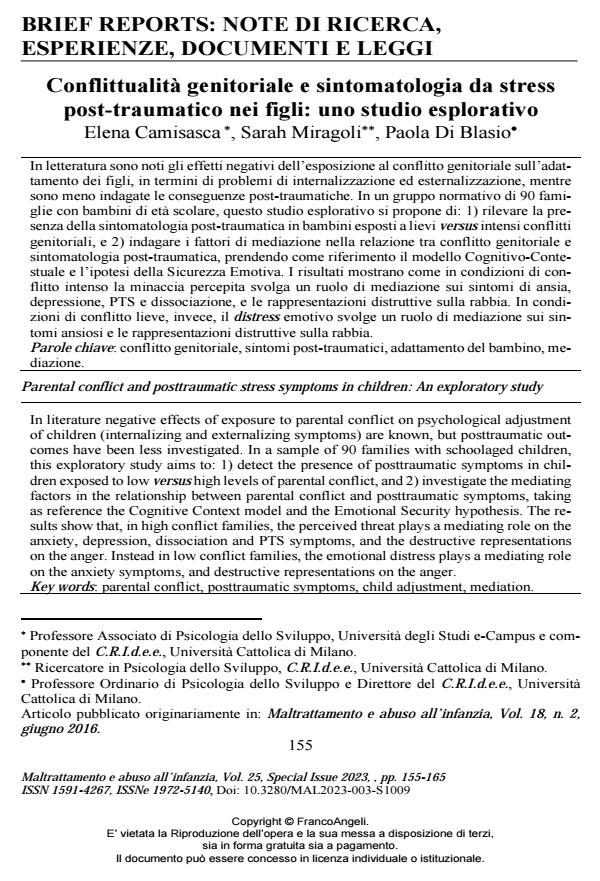Parental conflict and posttraumatic stress symptoms in children: An exploratory study
Journal title MALTRATTAMENTO E ABUSO ALL’INFANZIA
Author/s Elena Camisasca, Sarah Miragoli, Paola Di Blasio
Publishing Year 2024 Issue 2023/3 Suppl.
Language Italian Pages 11 P. 155-165 File size 204 KB
DOI 10.3280/MAL2023-003-S1009
DOI is like a bar code for intellectual property: to have more infomation
click here
Below, you can see the article first page
If you want to buy this article in PDF format, you can do it, following the instructions to buy download credits

FrancoAngeli is member of Publishers International Linking Association, Inc (PILA), a not-for-profit association which run the CrossRef service enabling links to and from online scholarly content.
In literature negative effects of exposure to parental conflict on psychological adjustment of children (internalizing and externalizing symptoms) are known, but posttraumatic outcomes have been less investigated. In a sample of 90 families with schoolaged children, this exploratory study aims to: 1) detect the presence of posttraumatic symptoms in children exposed to low versus high levels of parental conflict, and 2) investigate the mediating factors in the relationship between parental conflict and posttraumatic symptoms, taking as reference the Cognitive Context model and the Emotional Security hypothesis. The results show that, in high conflict families, the perceived threat plays a mediating role on the anxiety, depression, dissociation and PTS symptoms, and the destructive representations on the anger. Instead in low conflict families, the emotional distress plays a mediating role on the anxiety symptoms, and destructive representations on the anger.
Keywords: parental conflict, posttraumatic symptoms, child adjustment, mediation.
Elena Camisasca, Sarah Miragoli, Paola Di Blasio, Conflittualità genitoriale e sintomatologia da stress post-traumatico nei figli: uno studio esplorativo in "MALTRATTAMENTO E ABUSO ALL’INFANZIA" 3 Suppl./2023, pp 155-165, DOI: 10.3280/MAL2023-003-S1009